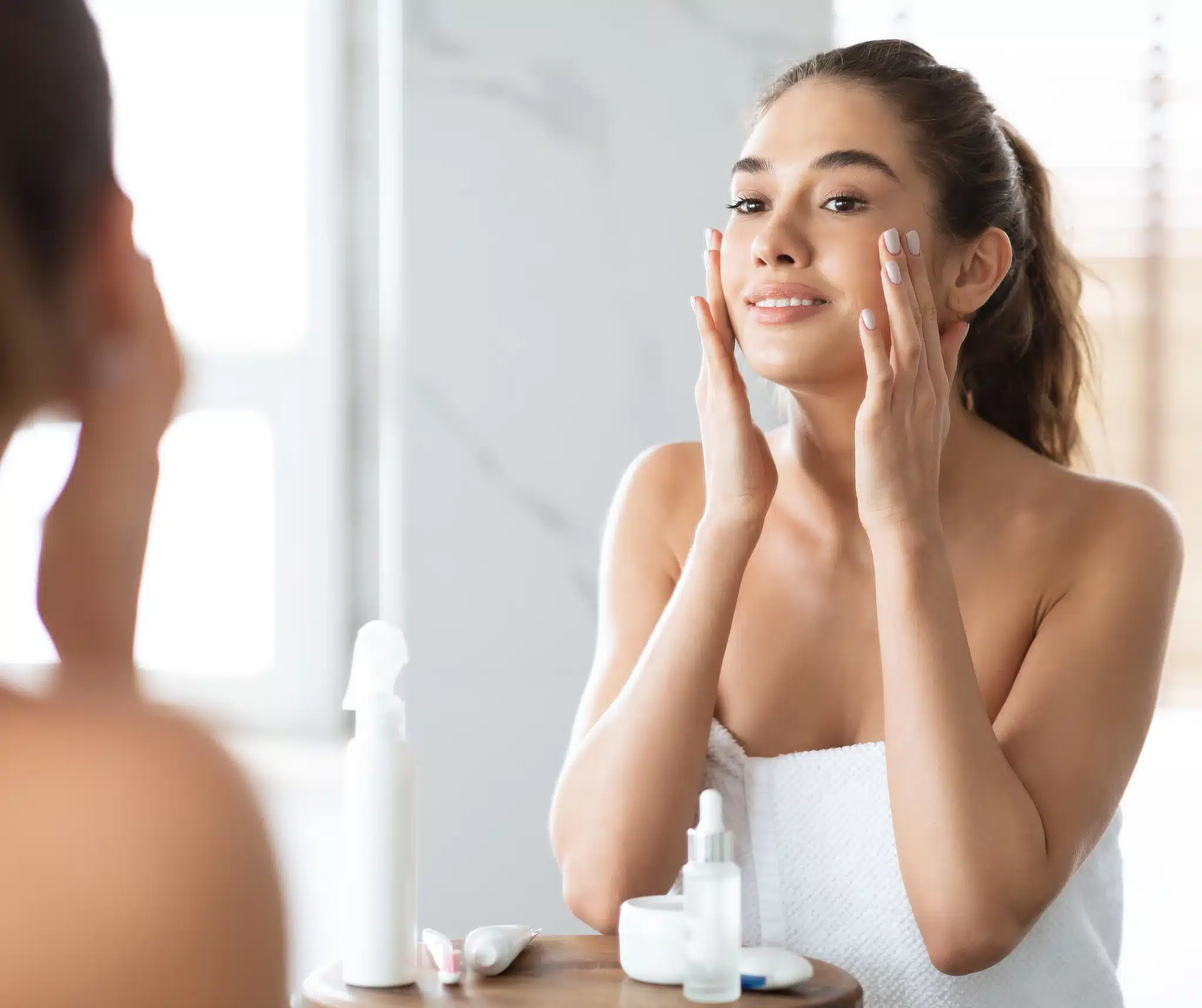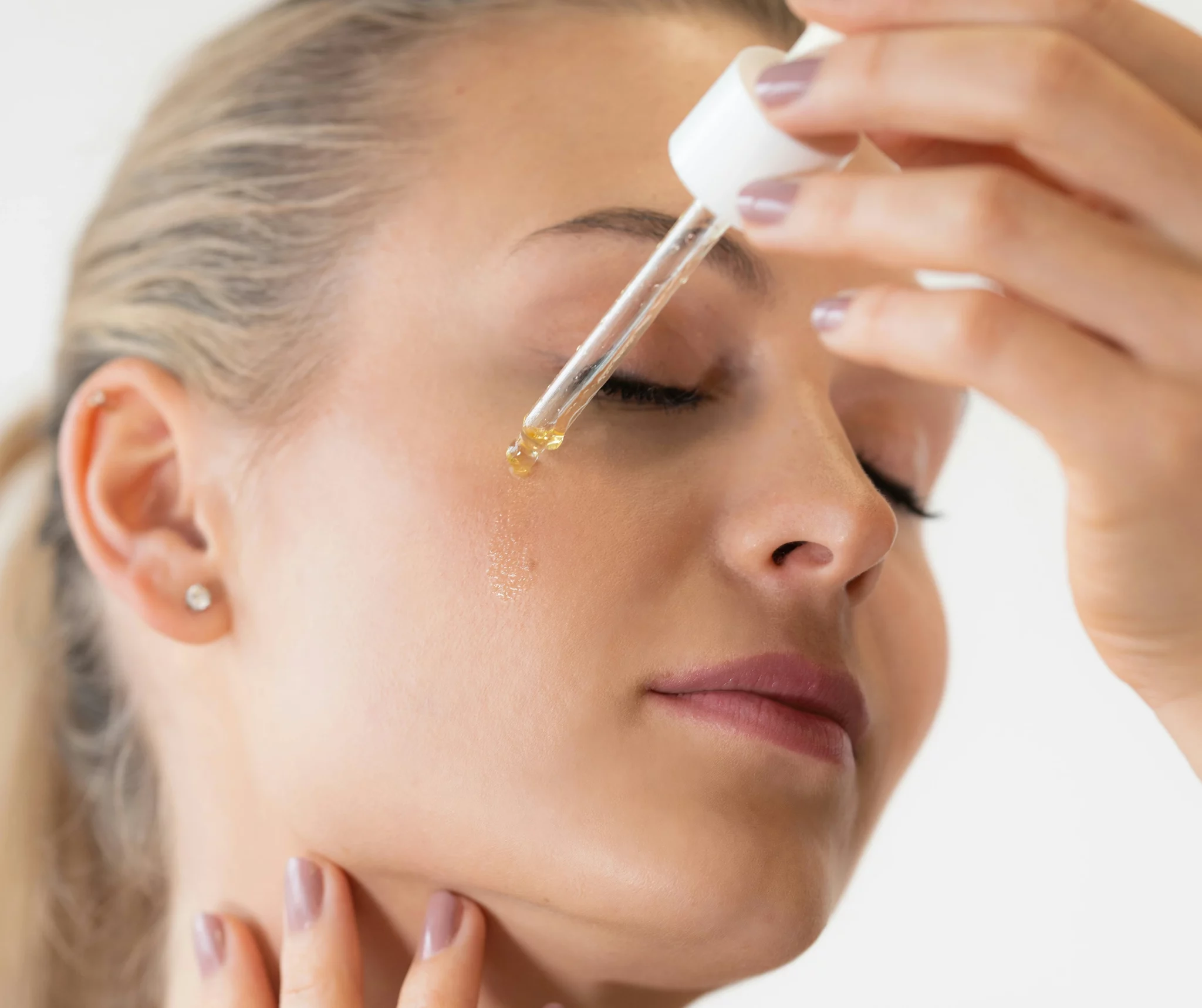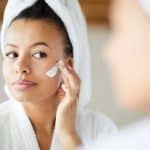

Good news: it is never too late to start on a skincare regimen that will help you age gracefully. Though you cannot stop aging (hence I don’t like to use the term anti-aging), the sooner you start using scientifically-proven skincare products, the more you will benefit.
First, let’s talk about aging.
There are two types of aging: intrinsic and extrinsic.
Intrinsic aging happens no matter what. Even if you lived a life of serenity indoors in a monastery, you cannot escape the natural aging process, much of which is determined by genetics. Intrinsic aging occurs because of a breakdown in your skin’s collagen and elastin structure, hormonal changes, and your body’s inability to fully repair itself. This leads to skin laxity, dryness, and fine lines and wrinkles.
Extrinsic aging takes place because of external forces such as sun exposure, smoking, poor diet, chronic stress, and environmental pollution. It can also result in fine lines and wrinkles, but the bigger concerns are pre-cancers, skin cancers, and changes in pigmentation.
Starting on a skincare regimen in your 20s and 30s is best, because your skin has many years to benefit from it. If you don’t start until your 50s, you won’t have the same benefits – but you will still see improvement.
The skincare products that will help you age gracefully
The ideal skincare regimen is built on three pillars:
Pillar one: sunscreen
The first is sunscreen. Sun damage affects the look and health of your skin, and with sunscreens so readily available – you can even buy them at gas stations! – there is no reason NOT to apply sunscreen daily.
The problem is finding what I (and other dermatologists) consider to be the highest-quality sunscreen. You want one that has broad-spectrum coverage to protect you from Ultraviolet A (UVA), Ultraviolet B (UVB), and visible light. All three contribute to sun damage.
In the US, we have fewer options for broad-spectrum coverage than in Europe, Asia and Latin America. You can read more about why in this article, along with my recommended workaround.
Pillar two: topical retinoids
The second and third pillars are topical products, both of which play the biggest role in helping maintain beautiful, healthy skin.
Retinoids are a class of chemical compounds that are related to vitamin A. They are proven to make the skin softer and brighter and diminish the appearance of lines. Topical retinoids also help stimulate the production of collagen, which makes your skin look fuller and more supple and helps mitigate the effects of age, weather, and a poor diet.
While prescription-strength tretinoin is the gold standard, some patients may benefit from building up gradually from over-the-counter retinoids, like retinol and retinaldehyde, to full prescription strength.
Pillar three: topical DNA repair enzymes
Our third pillar is topical DNA repair enzymes, which help stop and reverse sun damage and prevent precancerous growths. As soon as you apply these enzymes, magic happens. They recognize and correct some of the physical damage to your skin’s DNA that is caused by exposure to UV light.
This might sound too good to be true, but there is much science behind it. DNA repair enzymes have been studied in patients with serious genetic diseases such as Xeroderma Pigmentosum who are prone to pre-cancers and skin cancers, and they have been shown to reduce both by about 30%.
Other topical options
There are other topicals that can be helpful as well, such as creams or serums that contain growth factors and peptides. Growth factors are proteins that are naturally produced by skin cells and can improve skin firmness and elasticity and repair and rejuvenate skin.
If you have hyperpigmentation, you can use products that contain azelaic and glycolic acids, vitamin C, licorice root, and kojic acid. They can help reduce the appearance of spots by inhibiting tyrosinase, an enzyme responsible for the formation of skin-darkening melanin. Vitamin C also adds some degree of protection from sunburn.
For those of us of a certain age and gender, topical estrogen creams can combat thinning skin and help keep it as plump as possible. I often recommend that my perimenopausal and menopausal patients apply it under their eyes, on their necks and the backs of their hands.
With that said, starting a new skincare regimen is just like starting a new workout routine: Start small and build up. Topicals can sometimes irritate skin, which is why we create personalized skincare regimens for our patients and review and adjust them regularly.
Want to step it up?
Once your new skincare routine is established, you may want to step it up to see even more improvement in your skin health and appearance. In this case, we can add some procedures for even better results.
- Laser treatments help improve skin texture, reduce pigmentation, and treat pre-cancerous spots.
- Ultrasound treatments help tighten skin.
- Microneedling can also improve skin texture and tightness.
- Fillers replace lost volume for a more youthful appearance.
- Neurotoxins like Botox, DAXXIFY, Dysport, Xeomin, and Jeuveau help combat muscle activity and reduce the appearance of deep lines.
- Chemical peels of various depths can reduce fine lines, treat wrinkles caused by sun damage, reduce the appearance of age spots, and improve the look and feel of skin.
None are perfect. Some have downtime and some don’t. Some results last longer than others.
Your skin deserves to age gracefully
It’s easy to have beautiful, healthy skin as you age. Don’t forget that your skin is the largest organ in the body – it deserves all the attention we can give it!
If you would like help finding the right products, procedures, and regimen for you, schedule a consultation with us. We will discuss your concerns and have an honest conversation about the regimen that is ideal for you.
Posted In: Skin Care
Related Posts

February 16, 2026
Skincare in Your 20s: Common Concerns and Expert Tips
When you’re in your 20s, taking care of your skin can feel overwhelming. Everywhere you turn, there’s another influe...

January 2, 2026
Why DNA Repair Enzymes Matter for Healthy, Beautiful Skin
Every day, your skin works hard to protect you from the world — sunlight, pollution, and environmental stress can all ...

November 27, 2025
Does Sunscreen Prevent Tanning? The Truth About UVA Rays
I often meet patients who sit across from me in the exam room, proudly telling me they've been diligent about wearing su...


